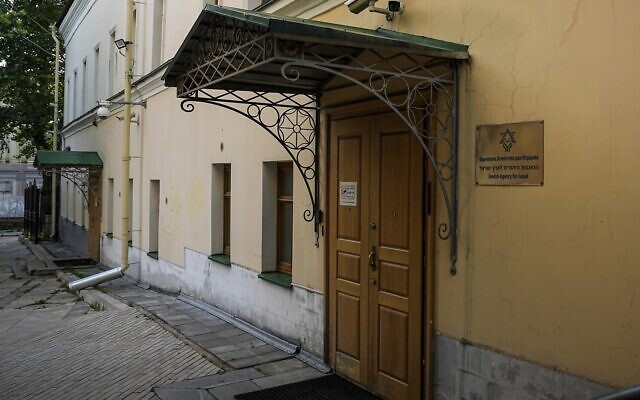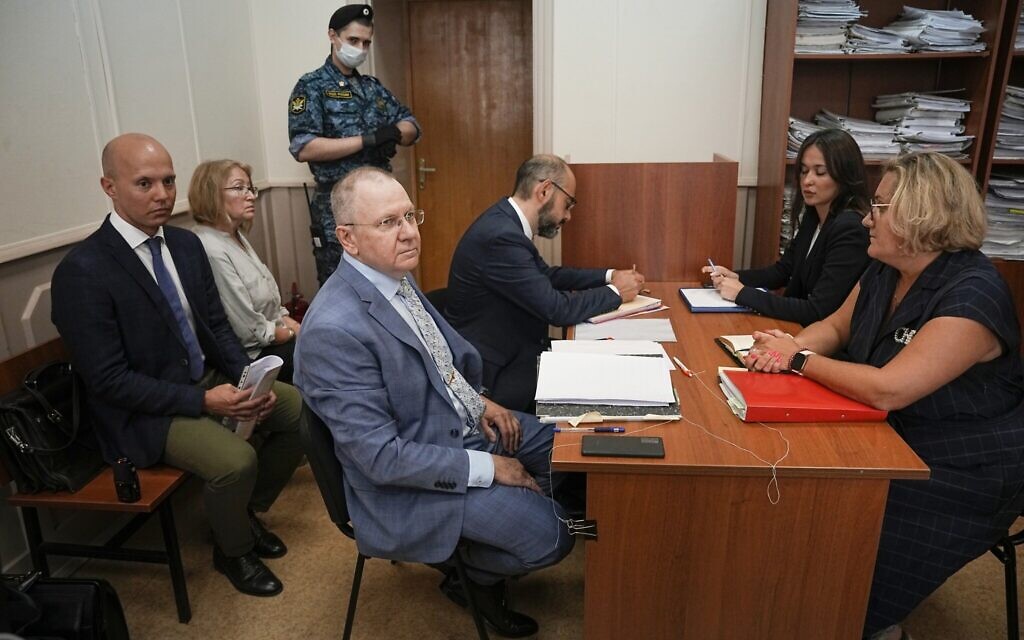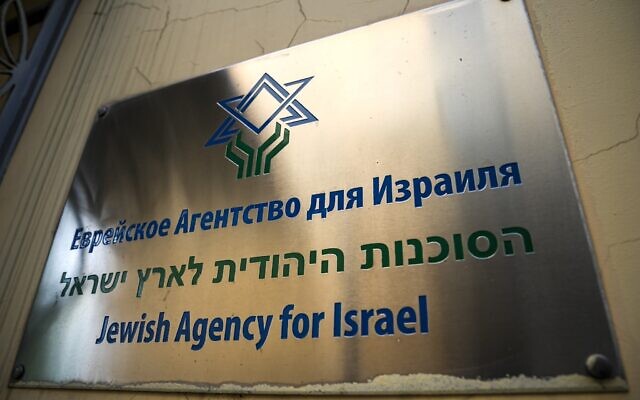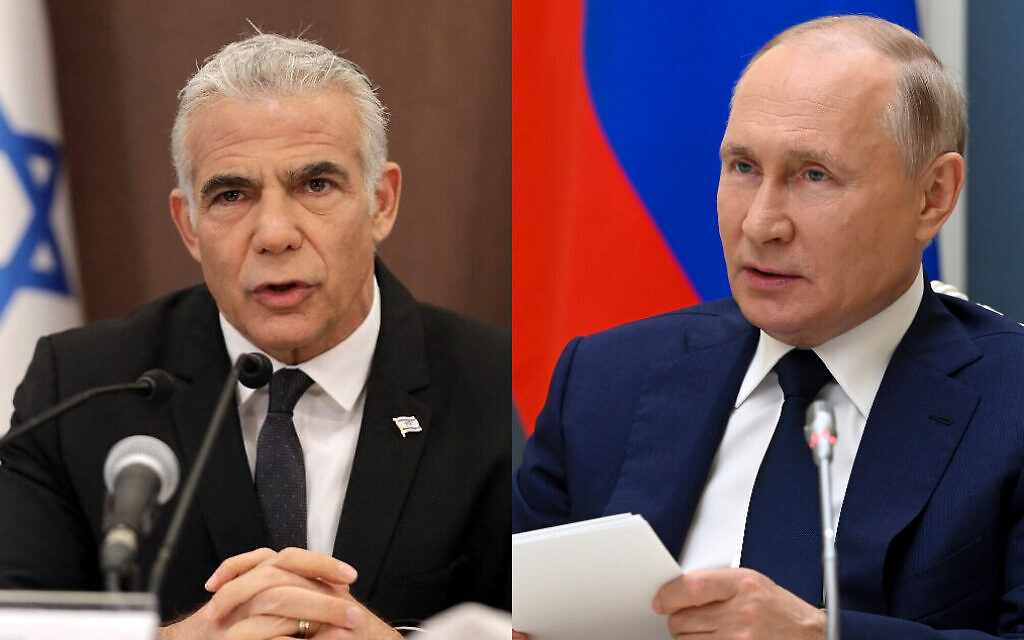Quasi-governmental Israel-immigration group has begun making preparations for possibility Moscow will go through with its threats, though it aims to keep some activities going

The Jewish Agency has begun making practical preparations for the possibility that Moscow will go through with its threats and order the quasi-governmental group to halt its activities in the country, an official in the organization said Wednesday.
But with a hearing on the future of the organization looming, the official denied that the Jewish Agency already believes it will lose its appeal and be forced to shut down all activities related to immigration to Israel.
The Russian justice ministry is seeking to halt the Jewish Agency’s work in the country, accusing it of illegally collecting information on Russian citizens.
“We’re examining all the options for a rainy day,” the Jewish Agency official said, speaking on condition of anonymity. But he said the organization did not anticipate imminent showers.
“The trial could go both ways: shutdown, or staying under tightened regulation,” he said. “But we’re certainly not going to leave if we can help it.”
A report in the Jerusalem Post Wednesday cited an unidentified source who claimed that the Jewish Agency was already making arrangements to end all activities in Russia, beyond funding local initiatives.

Ahead of the August 19 hearing, Israeli officials have been working to negotiate with their Russian counterparts to allow the organization, which encourages and facilitates Jewish immigration to Israel, to continue its operations in Russia, even if that means doing so at a reduced level or with stricter oversight.
While Russian authorities insist that their efforts to shutter the Jewish Agency, a quasi-official organization closely connected to the Israeli government, are purely a legal matter, many in Israel see the move as a diplomatic tactic aimed at putting pressure on Jerusalem.

Earlier this week, President Isaac Herzog raised the issue directly with Russian leader Vladimir Putin, and the two agreed to continue discussing the matter, their offices said.
For the past month and a half, the Jewish Agency has been exploring different ways of ensuring that it can continue providing its services to the Russian Jewish community regardless of how the court rules.
“The idea is to maintain as much as we can all existing activities and we’re examining all possible ways and platforms to do it should circumstances force us to leave Russia,” the official said.
The official refused to specify what potential configurations the organization was considering. It would likely include some mix of moving certain operations online, performing others through new organizations and stepping up services in neighboring countries.
Prime Minister Yair Lapid has warned that Moscow shuttering the Jewish Agency would be “a grave event” which would have “consequences” for Russian-Israeli ties.
Herzog, for his part, has suggested that the issue is better dealt with quietly and behind the scenes: “I believe that the less we speak about it, the better we’ll be. It will allow proper treatment of the issue,” he said at a conference last month.

Lapid has frequently used Herzog, who occupies a largely symbolic position, for sensitive diplomatic tasks, including helping Israel reset its long-strained ties with Turkey. Herzog headed the Jewish Agency from 2018 to 2021.
Moscow’s reasons for targeting the Jewish Agency remain unclear, as Russian officials have yet to indicate what — if any — steps Israel could take that would prompt them to call off its threats to shutter the group.
Many see the tensions as a result of Israel’s increased support for Ukraine in its conflict with Russia. But some have cited personal differences between Putin and Lapid, as well as Russian opposition to Israel’s ongoing campaign against Iran in Syria and Russia’s desire to gain control over the Alexander Court church in the Old City of Jerusalem.
Jerusalem has avoided providing direct military aid to Kyiv — including offensive arms or advanced defensive technology — since Russian troops invaded Ukraine on February 24.
Israel had sought to avoid sparking a crisis with Moscow in order to maintain freedom of movement in Syria’s skies, which are largely controlled by Russia. However, its vocal support for Ukraine and supplies of helmets and other non-lethal defensive supplies have nonetheless placed it at odds with the Kremlin.
As reported by The Times of Israel
